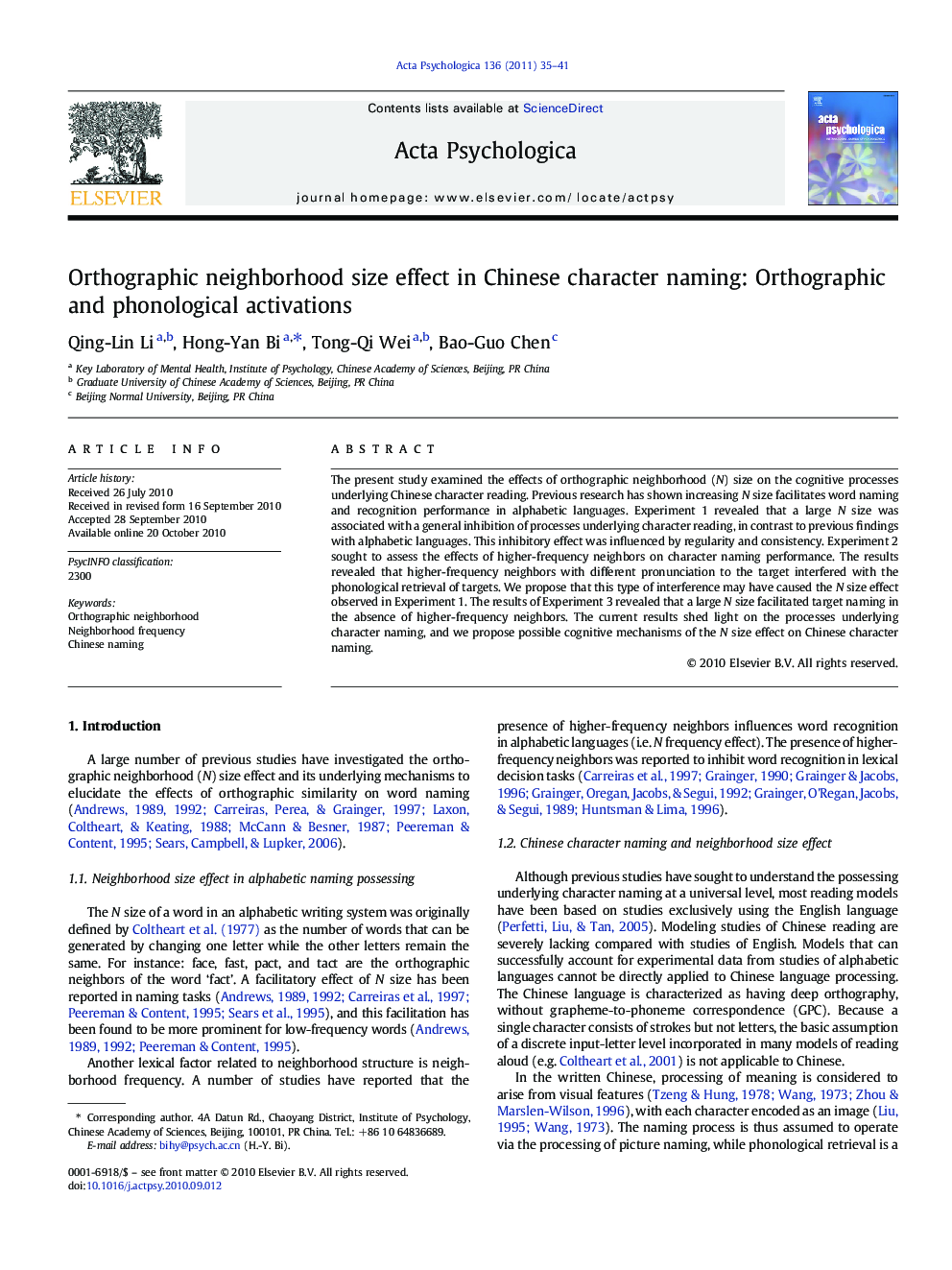| Article ID | Journal | Published Year | Pages | File Type |
|---|---|---|---|---|
| 920301 | Acta Psychologica | 2011 | 7 Pages |
The present study examined the effects of orthographic neighborhood (N) size on the cognitive processes underlying Chinese character reading. Previous research has shown increasing N size facilitates word naming and recognition performance in alphabetic languages. Experiment 1 revealed that a large N size was associated with a general inhibition of processes underlying character reading, in contrast to previous findings with alphabetic languages. This inhibitory effect was influenced by regularity and consistency. Experiment 2 sought to assess the effects of higher-frequency neighbors on character naming performance. The results revealed that higher-frequency neighbors with different pronunciation to the target interfered with the phonological retrieval of targets. We propose that this type of interference may have caused the N size effect observed in Experiment 1. The results of Experiment 3 revealed that a large N size facilitated target naming in the absence of higher-frequency neighbors. The current results shed light on the processes underlying character naming, and we propose possible cognitive mechanisms of the N size effect on Chinese character naming.
